
Dr. Charlotte Lacroix explains why you shouldn't be so hasty to sign a veterinary employment contract.

Dr. Charlotte Lacroix explains why you shouldn't be so hasty to sign a veterinary employment contract.

Dr. Charlotte Lacroix shares the best way to approach the CBD topic with clients.

We end this year faced with the uncertainties of a future with new government and what this will mean for the veterinary profession.

This is an exciting time to be in veterinary medicine as we are seeing a renewed focus on animal health.

Charlotte Lacroix, DVM, JD provides tips to help you successfully negotiate commercial leases for your veterinarian practice.

The scenario of nonveterinarians becoming practice owners is a hot topic. Here Charlotte Lacroix, DVM, JD, outlines some important issues to address when entering into such an arrangment, as well as the payoffs.
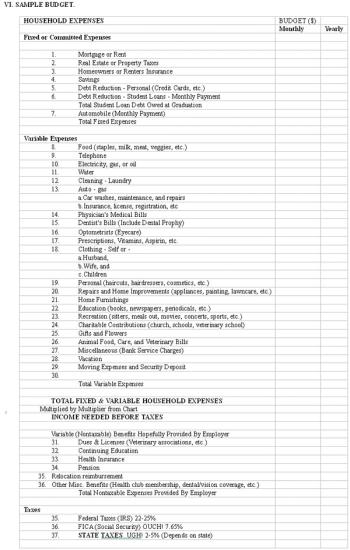
High turnover among veterinary associates is caused principally by the failure of practice owners and employees to properly articulate their respective expectations and negotiate and document the employment relationship. Time and effort invested up front will help avoid mismatched expectations, misunderstandings and separation down the road.

Buying or selling a veterinary practice generally is a long and arduous process. Preparation and a good lawyer are key to smoothing the bumps along the way.
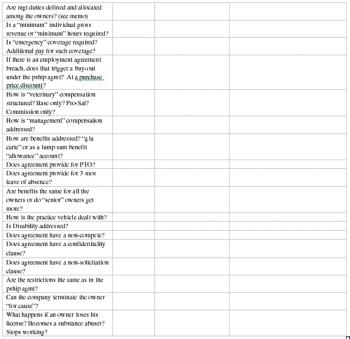
Co-ownership issues often arise when veterinary practitioners enter into a partnership with other owners, or when two or more associates jointly venture into practice acquisition. In most aspects co-ownership of a veterinary practice is akin to marriage, and it is vitally important to agree on the principal terms governing the relationship before getting hitched.
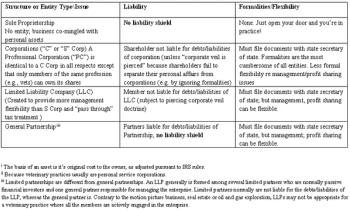
Choosing the correct structure for your veterinary practice is an important decision with consequences reaching far into the future. Selecting your practice structure is definitely not a "do it yourself" project. Substantial tax, legal and accounting expertise is required. Veterinarians nevertheless need to stay active in the process to ensure the experts' narrow technical proposals get folded into a coherent plan that reflects your needs and goals.

Co-ownership issues often arise when veterinary practitioners enter into a partnership with other owners, or when two or more associates jointly venture into practice acquisition. In most aspects co-ownership of a veterinary practice is akin to marriage, and it is vitally important to agree on the principal terms governing the relationship before getting hitched.

Buying or selling a veterinary practice generally is a long and arduous process. Preparation and a good lawyer are key to smoothing the bumps along the way.

When is it legal to search veterinary team members' lockers?

My manager and associate order equine products through my veterinary practice. Is this legal, since I don't treat horses?

The veterinarian I work for has questionable ethics; he treats animals in ways that clients wouldn't approve.

The veterinarian I work for has questionable ethics; he treats animals in ways that clients wouldn't approve. Can I do anything about it?

The owner of my practice makes rude remarks about women's work abilities. Should I confront the doctor about his sexist comments?

We took in a boarder from a longtime, good client, who said the pet was a stray that he acquired from the local groomer. During our exam, we found a microchip and were able to locate and contact the original owner, who said the dog had been stolen about six weeks earlier. What are our rights and responsibilities in situations like this?

I don't want to leave staff members jobless when I sell my practice. Can I include a clause in the contract requiring the buyer to retain my employees?

Published: February 12th 2016 | Updated:

Published: December 29th 2016 | Updated:

Published: August 3rd 2016 | Updated:
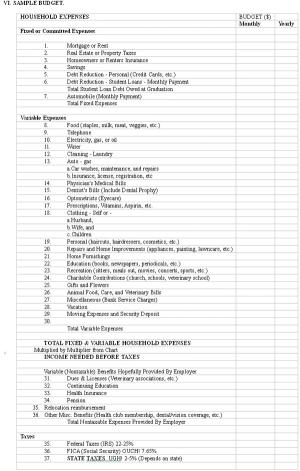
Published: November 1st 2010 | Updated:

Published: November 1st 2010 | Updated:
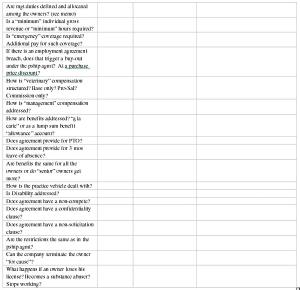
Published: November 1st 2010 | Updated: